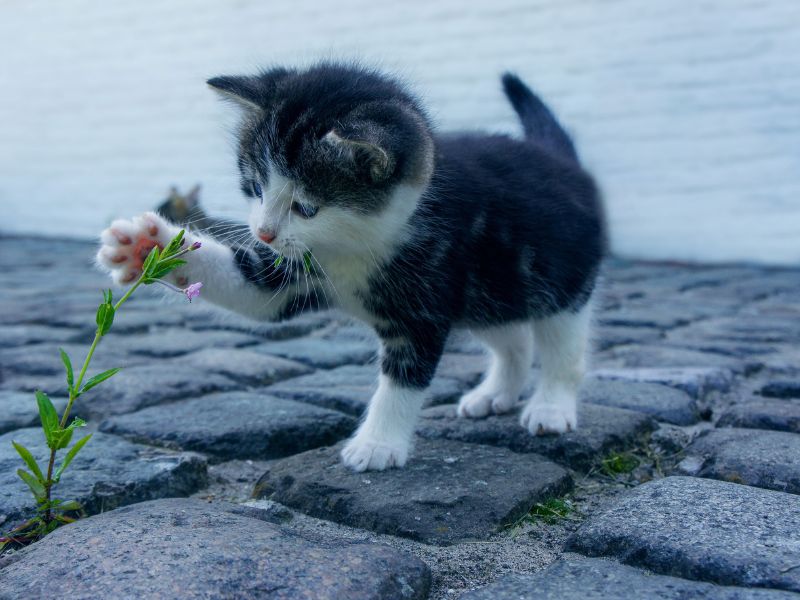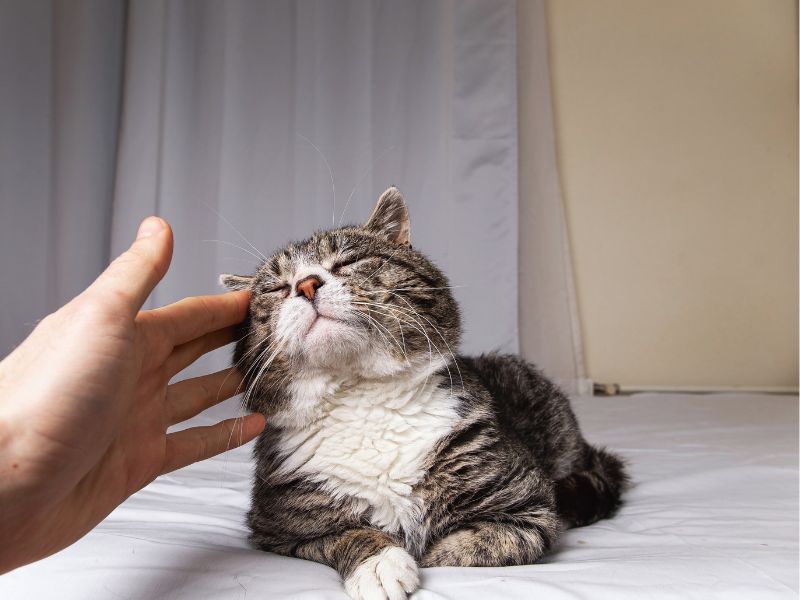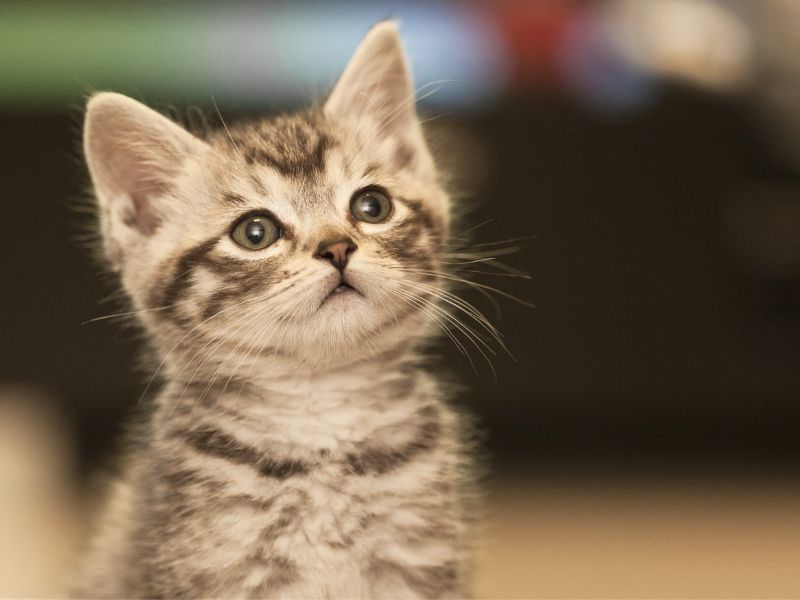Welcome to the fascinating world of feline longevity! If you’ve ever wondered how long your beloved cat might live, you’ve come to the right place. In this article, we’ll explore the average life expectancies of cats and the factors that can influence their lifespan.
Cats are known for their independent and mysterious nature, but when it comes to their lifespan, there are certain patterns. On average, cats generally live between 13 to 17 years. However, some cats have been known to live well into their 20s or even their 30s!
Factors that Influence a Cat’s Lifespan
Several factors can contribute to a cat’s lifespan. Genetics, nutrition, environment, and overall health are all critical factors. Genetics play a significant role in determining a cat’s lifespan. Just like humans, cats inherit certain traits from their parents, including their predisposition to certain health conditions. For instance, some breeds, such as Persians and Siamese cats, may be more prone to specific genetic health issues that can impact their longevity.
Nutrition is another vital factor in a cat’s lifespan. A well-balanced diet that meets all their nutritional needs is essential for maintaining their overall health and longevity. Feeding your cat high-quality cat food that is appropriate for their age and health condition can help prevent nutritional deficiencies and promote a healthy immune system.
The environment in which a cat lives can also significantly impact their lifespan. Indoor cats generally have longer lifespans compared to their outdoor counterparts. Outdoor cats are exposed to various risks, such as accidents, fights with other animals, exposure to harsh weather conditions, and the transmission of infectious diseases. Indoor cats, on the other hand, are typically protected from these dangers and have a safer and more controlled environment.
Average Lifespan of Indoor Cats
Indoor cats tend to live longer lives compared to outdoor cats. With a protected and controlled environment, indoor cats are less exposed to the risks and hazards that outdoor cats face. On average, indoor cats can live between 15 to 20 years or even longer with proper care.
Living indoors provides cats with protection from accidents, predators, and exposure to infectious diseases. Additionally, indoor cats are less likely to experience the stress and trauma that can be associated with outdoor living. They have a stable and comfortable environment that allows them to thrive and live a longer, healthier life.
However, it’s important to remember that simply keeping your cat indoors doesn’t guarantee a longer lifespan. They still need proper care, mental stimulation, and regular veterinary check-ups to maintain their health and well-being. Providing them with interactive toys, scratching posts, and a variety of activities can help keep them mentally and physically stimulated.
Average Lifespan of Outdoor Cats
Outdoor cats, unfortunately, have a shorter average lifespan compared to indoor cats. Due to the inherent risks associated with outdoor living, such as accidents, fights with other animals, exposure to harsh weather conditions, and the transmission of infectious diseases, outdoor cats face a higher mortality rate.
On average, outdoor cats live between 7 to 10 years. However, it’s important to note that some outdoor cats may live longer if they are fortunate enough to avoid significant risks and receive regular veterinary care. Providing outdoor cats with vaccinations, flea and tick prevention, and regular check-ups can help mitigate some of the potential health risks associated with their lifestyle.
It’s worth mentioning that some cat owners choose to allow their cats to have access to both indoor and outdoor environments, known as “indoor/outdoor” cats. These cats may have a lifespan somewhere between that of indoor and outdoor cats, depending on the risks they encounter and the level of care provided.

How to Extend Your Cat’s Lifespan
While genetics, nutrition, and environment play a significant role in a cat’s lifespan, there are several steps you can take to help extend your furry friend’s life:
- Proper Nutrition: Feed your cat a balanced diet that meets their nutritional needs. Consult with your veterinarian to determine the best diet for your cat’s age, breed, and health condition.
- Regular Veterinary Care: Schedule regular check-ups with your veterinarian to monitor your cat’s health and address any potential issues early on. Vaccinations, parasite prevention, and dental care are essential components of routine veterinary care.
- Exercise and Mental Stimulation: Provide your cat with opportunities for exercise and mental stimulation. Interactive toys, scratching posts, and play sessions can help keep your cat physically and mentally active.
- Environmental Enrichment: Create a safe and stimulating environment for your cat. Provide scratching posts, climbing structures, hiding spots, and interactive toys to keep them entertained and engaged.
- Spaying or Neutering: Consider spaying or neutering your cat. This not only helps control the pet population but also reduces the risk of certain health issues, such as reproductive cancers.
- Stress Management: Minimize stressors in your cat’s environment. Cats are sensitive to changes, so try to maintain a stable and predictable routine for them.
- Dental Care: Take care of your cat’s oral health by regularly brushing their teeth or providing dental treats. Poor dental hygiene can lead to various health problems, including heart disease.
By following these tips and providing your cat with the love and care they deserve, you can significantly increase their chances of living a long and healthy life.
Common Health Issues That Can Affect a Cat’s Lifespan
While every cat is unique, there are certain health issues that commonly affect cats and can impact their lifespan. Some of these health issues include:
- Dental Disease: Poor dental hygiene can lead to gum disease, tooth loss, and even organ damage if left untreated.
- Obesity: Obesity is a common health issue among cats and can lead to various health problems, including diabetes, arthritis, and heart disease.
- Kidney Disease: Chronic kidney disease is prevalent in older cats and can significantly impact their quality of life and lifespan if not properly managed.
- Hyperthyroidism: Hyperthyroidism is a condition that affects the thyroid gland and can cause weight loss, increased appetite, and other symptoms if left untreated.
- Cancer: Cats can develop various types of cancer, including lymphoma, mammary tumors, and skin cancer. Early detection and treatment are vital for improving the prognosis.
It’s important to be aware of these potential health issues and seek veterinary care if you notice any abnormal symptoms or behaviors in your cat. Regular check-ups and preventive care can help detect and address these issues early on, allowing for better management and improved quality of life.
Tips for Keeping Your Cat Healthy and Increasing Their Lifespan
To ensure your cat’s health and increase their lifespan, consider the following tips:
- Provide a Balanced Diet: Feed your cat high-quality cat food that meets their nutritional needs. Avoid overfeeding and consult with your veterinarian if you have any concerns about their diet.
- Keep Them Hydrated: Ensure your cat has access to fresh, clean water at all times. Some cats prefer running water, so a cat fountain can encourage them to drink more.
- Regular Grooming: Regularly groom your cat to keep their coat clean and free from mats. Grooming also provides an opportunity to check for any abnormalities or skin issues.
- Keep Their Environment Clean: Maintain a clean litter box and provide a comfortable and safe environment for your cat. Regular cleaning and maintaining a hygienic living space can help prevent the spread of diseases.
- Provide Mental Stimulation: Engage your cat in interactive play sessions and provide toys that stimulate their natural hunting instincts. Mental stimulation is essential for their overall well-being.
- Monitor Their Weight: Regularly monitor your cat’s weight and body condition. Obesity can lead to numerous health problems, so consult with your veterinarian if you notice any weight changes.
- Create a Safe Outdoor Space (if applicable): If you allow your cat outdoors, create a safe and enclosed outdoor space where they can explore while minimizing risks.
Remember, each cat is unique, and their needs may vary. Pay attention to your cat’s individual preferences and behaviors to provide the best possible care tailored to their specific needs.

See Also: Can You Suddenly Become Allergic To Cats?
And: How to Bathe a Cat: A Step by Step Guide
Cat Breeds with Longer or Shorter Lifespans
While individual cats’ lifespans can vary based on various factors, certain cat breeds are known to have longer or shorter average lifespans.
Some cat breeds that tend to have longer lifespans include:
- Siamese: Siamese cats are known to live longer lives compared to other breeds, with an average lifespan of around 15 to 20 years.
- Russian Blue: Russian Blue cats are generally healthy and can live between 15 to 20 years or even longer with proper care.
- Burmese: Burmese cats have an average lifespan of 14 to 18 years. They are generally healthy and have a robust immune system.
On the other hand, some cat breeds may have shorter average lifespans due to certain genetic predispositions or health issues. These breeds include:
- Persian: Persians are prone to various health issues, including respiratory problems and genetic kidney disease, which can affect their lifespan.
- Sphynx: Sphynx cats are susceptible to certain skin conditions and respiratory problems, which may impact their overall health and lifespan.
It’s important to note that these are general trends, and individual cats’ lifespans can still vary even within the same breed. Providing proper care, nutrition, and regular veterinary check-ups can help mitigate potential health issues and increase your cat’s chances of living a longer life, regardless of their breed.
Understanding Your Cat’s Life Stages
Just like humans, cats go through different life stages that can impact their needs and health. Understanding these life stages can help you provide appropriate care and support for your feline companion.
- Kittenhood: Kittenhood is the early stage of a cat’s life, typically lasting from birth to around 6 months. During this stage, kittens require proper nutrition, socialization, and veterinary care to set a strong foundation for their future development.
- Adolescence: Adolescence typically occurs between 6 months and 2 years of age. Cats in this stage may exhibit increased energy, curiosity, and the development of sexual behaviors. Spaying or neutering your cat during this stage is recommended to prevent unwanted behaviors and health issues.
- Adulthood: Adulthood begins around 2 years of age and can last until around 7 years. Cats in this stage are generally healthy and active, but may start to show signs of aging as they approach their senior years.
- Senior Years: Cats are considered seniors around 7 years of age. During this stage, cats may experience age-related health issues, such as arthritis, dental problems, and decreased mobility. Regular veterinary check-ups and adjustments to their care routine can help support their health and well-being.
Understanding each life stage allows you to adapt your care and provide the necessary support for your cat as they age. Regular veterinary check-ups are particularly important during the senior years to monitor for any age-related health issues and provide appropriate treatment.
Conclusion and Final Thoughts
In conclusion, the average lifespan of cats ranges from 13 to 17 years, but individual cats can live well into their 20s or even their 30s with proper care. Genetics, nutrition, environment, and overall health are all critical factors that influence a cat’s lifespan.
Providing a balanced diet, regular veterinary care, a safe environment, and mental stimulation are essential for supporting your cat’s health and increasing their lifespan. Additionally, being aware of common health issues that can affect cats and taking preventive measures can help mitigate potential risks.
Remember that each cat is unique, and their needs may vary. Paying attention to your cat’s individual needs, behaviors, and providing them with love, care, and attention can go a long way in ensuring they live a long and happy life by your side. So cherish every moment with your feline companion and make the most of the time you have together.
Happy cat parenting!

